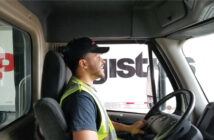by Jennifer Hall
General Counsel, American Trucking Associations
In the spring issue of TRUX, I outlined the broad multi-prong, multi-year campaign that American Trucking Associations is pursuing to stop lawsuit abuse against motor carriers. This endeavor has marshalled the full reach and power of the ATA federation, as we work at both the federal and state level to reform the civil justice system and prevent the plaintiffs’ bar from further profiting off abusive litigation at the expense of honest, hardworking truckers.
As many states wound down their spring legislative sessions, our industry notched several more significant victories on this front. By analyzing the early wins in this campaign, we see opportunities for additional states to enact similar measures within their own jurisdictions. In this article, we dive into some of the specific reforms that our federation has secured in various states, each of which have implications beyond their own borders by establishing precedent and providing momentum for our broader campaign efforts.
One of the most significant developments played out in Texas with the passage of HB 19. Signed by Governor Abbott on June 6, 2021, it is a comprehensive reform addressing the legal doctrine respondeat superior. In layman’s terms, HB 19 limits the scope of civil suits against motor carriers to the facts of the accident underlying the case – determining who in fact caused the collision, and the extent of any injuries that resulted. It prevents plaintiffs’ lawyers from “opening the door” to irrelevant but potentially inflammatory information from a motor carrier’s past.
This denies the trial bar their preferred tactic in highway accident litigation: the so-called “reptile theory.” This approach aims to draw the jury’s attention away from the facts of the crash itself – who caused it, and what injuries resulted – and instead toward the motor carrier’s unrelated, prior alleged lapses. It provokes a primitive fear response (in the “reptile” part of the brain) that those unrelated lapses pose a threat to a juror’s own safety and the safety of the community. That response then influences the juror to find the motor carrier culpable even where the driver involved in the crash did nothing improper.
This, of course, is not to suggest that motor carriers should get a pass for lapses in hiring, supervision or other practices. On the contrary; the trucking industry is one of the most highly regulated industries in the nation precisely because of the need to ensure high safety standards. Congress created an entire agency of the federal government – the Federal Motor Carrier Safety Administration – whose mission is to promulgate and enforce trucking safety regulations, including strict driver qualification standards. The point is simply that it is not the proper role of a jury in a civil trial to award damages motivated by a nebulous sense that the motor carrier has an imperfect history, rather than the carrier’s actual culpability for the crash and the resulting injuries.
Another significant reform occurred in West Virginia with the passage of SB 272. This bill broadly protects the owner-operator model – a critical component of trucking – by establishing a clear, bright-line test for what constitutes an independent contractor under state law. Importantly, it specifically enables motor carriers to require safety improvements of their ICs – whether that be a device, equipment, software, training, practices, policies or procedures – without being held liable as the independent contractor’s employer.
Absent that provision, plaintiffs’ attorneys will use a motor carrier’s requirement of safety standards among its independent contractors as evidence of control and, therefore, a basis for predatory litigation over employment law and compensation matters. That in turn creates a disincentive for motor carriers to provide their contracted owner-operators with improved safety training and equipment. As state legislatures, some members of Congress and other forces across the country attempt to dismantle the independent contractor model, the passage of SB 272 in West Virginia puts an important marker down that denies the plaintiffs’ bar to use IC issues as a wedge for abusive litigation.
Another noteworthy reform that criminalizes the staging of accidents was signed into law in Louisiana. The Bayou State was home to a sophisticated criminal network that was exposed for planning and deliberately causing accidents with unwitting tractor-trailers. The conmen, at the direction of their culpable lawyers, would then sue the motor carriers in civil court to receive millions of dollars in illicit and phony damages. Following an extensive investigation by the FBI, dozens have been indicted for their roles in the plots, including a plaintiffs’ attorney, who acted as a ringleader and has since plead guilty to wire and mail fraud.
But as outrageous as it sounds, there is no criminal statute against staging auto accidents. That forces prosecutors to rely on tertiary charges like insurance fraud and makes it harder for investigators to pursue these criminal organizations. The passage of HB 15 changes that in Louisiana and establishes a common-sense, pro-safety criminal statute for other states to emulate. ATA is looking to introduce a similar measure at the federal level, working with lawmakers on both sides of the aisle to introduce it as an amendment to a highway bill this year.
These are but a few of the wins our industry has secured in the early stages of our long-term campaign. None of them on their own will stop lawsuit abuse, but collectively they have begun to change the legal landscape by restoring balance and fairness to the civil justice system and its treatment of highway accident litigation. As an industry of interstate commerce, it’s important for motor carriers to be aware of this progress, regardless of which state they base operations in. Like a row of dominoes, each successive win pushes more states to act, and it’s the personal stories of truckers that will compel lawmakers to take action and bring an end to lawsuit abuse against our industry. You can visit trucking.org/lawsuitabuse to stay up to date on the latest developments as our campaign progresses.
PHAISARN 2517/SHUTTERSTOCK.COM



